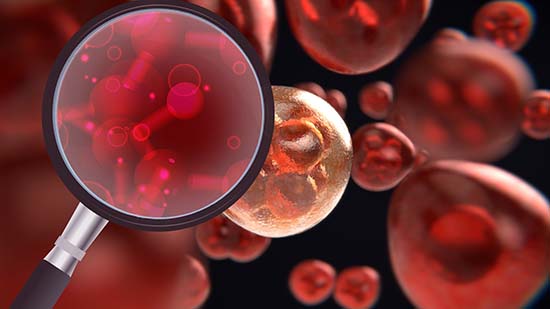Unveiling the Hidden Signatures of Drug Resistance in Cancer Cells

by Allison Kleber and Millie Zhu
Ideally, when medical researchers use advanced microscopic imaging techniques to examine living cancer cells, they would achieve results allowing for the highest degree of accuracy in diagnosis and investigation of the behaviors of these malignancies, and the best chance of creating effective new treatments for sufferers. Such results would be characterized by speedy generation, the most detailed possible information, and a low signal-to-noise ratio (SNR). Unfortunately, in spite of undoubted advances in instrumentation in recent years, most approaches are forced to sacrifice the quality of one or two of these essential parameters, in order to optimize the third.
Supported by a $1.75M grant from the National Institute of Biomedical Imaging and Bioengineering, a multidisciplinary team of experts led by Professor Ji-Xin Cheng are developing a novel approach to break this conventional barrier and establish high-speed, high-content and high-sensitivity mapping of cell metabolism. Cheng, a leading expert in the development and applications of a microscopy technique called stimulated Raman scattering (SRS), is joined by co-investigators Professor Lei Tian, also of BU ECE and a leading expert in computational microscopy and machine learning, and Professor Daniela Matei of Northwestern, a leading expert in cancer research with a specialization in ovarian cancer. Together, the trio will bring their specialized prowess and strong collaborative background to the problem of creating not one, but two complementary imaging platforms which will synergistically integrate advanced instrumentation and data science to produce the desired results.
The first planned platform, intended for use with samples of unknown origin, will employ a carefully tuned pair of chirped laser pulses on a very fast time scale (20 microseconds) and then apply deep spectral-spatial learning to extract low-SNR information from the initial measurements, thus circumventing the tendency of higher-speed instruments to provide results with considerable noise. Conversely, the second platform will take samples from a known target species and, utilizing a novel “recursive feature elimination” algorithm which will determine the minimum number of image captures needed, will deploy a fast-tuning fiber laser to perform that pared-down imaging, achieving wide-bandwidth, low-SNR results in the fastest possible time (under one second).
Used systematically as a focused application, these proposed platforms hold huge potential for examining lipid metabolic reprogramming in drug-resistant ovarian cancers. Cheng, Tian and Matei are confident that they will be able to discover the “hidden signatures” left when cancer cells become resistant to common therapies like cisplatin, which will facilitate the development of improved treatments and a more hopeful future for cancer patients.
This collaboration parallels another of Professor Cheng’s current projects, which similarly seeks to identify how metabolic reprogramming affects drug resistance in ovarian cancers by focusing on a different molecular category. (Mid-infrared photothermal microscopy is effective for examining proteins in the targeted cells, while the stimulated Raman scattering method in this study is sensitive to lipids.) Wherever the key to understanding this disease process may be hiding, these complementary methodologies provide researchers with an unparalleled opportunity to detect, understand, and transform its outcomes.
 Professor Ji-Xin Cheng is the Theodore Moustakas Chair Professor in Photonics and Optoelectronics. His ground-breaking work in medical imaging and myriad other optical technologies and applications has earned him significant honors, including the Pittsburgh Spectroscopy Award (2020), the Purdue University College of Engineering Research Excellence Award (2016), and Optica’s Ellis R. Lippincott Award (2019), named for a fellow pioneer in vibrational spectroscopy.
Professor Ji-Xin Cheng is the Theodore Moustakas Chair Professor in Photonics and Optoelectronics. His ground-breaking work in medical imaging and myriad other optical technologies and applications has earned him significant honors, including the Pittsburgh Spectroscopy Award (2020), the Purdue University College of Engineering Research Excellence Award (2016), and Optica’s Ellis R. Lippincott Award (2019), named for a fellow pioneer in vibrational spectroscopy.
Professor Lei Tian joined the department of Electrical & Computer Engineering in 2016, having earned his PhD from the Massachusetts Institute of Technology in 2013. His many honors include the Boston University College of Engineering’s Early Career Excellence in Research Award (2021), and a National Science Foundation CAREER Award (2019).